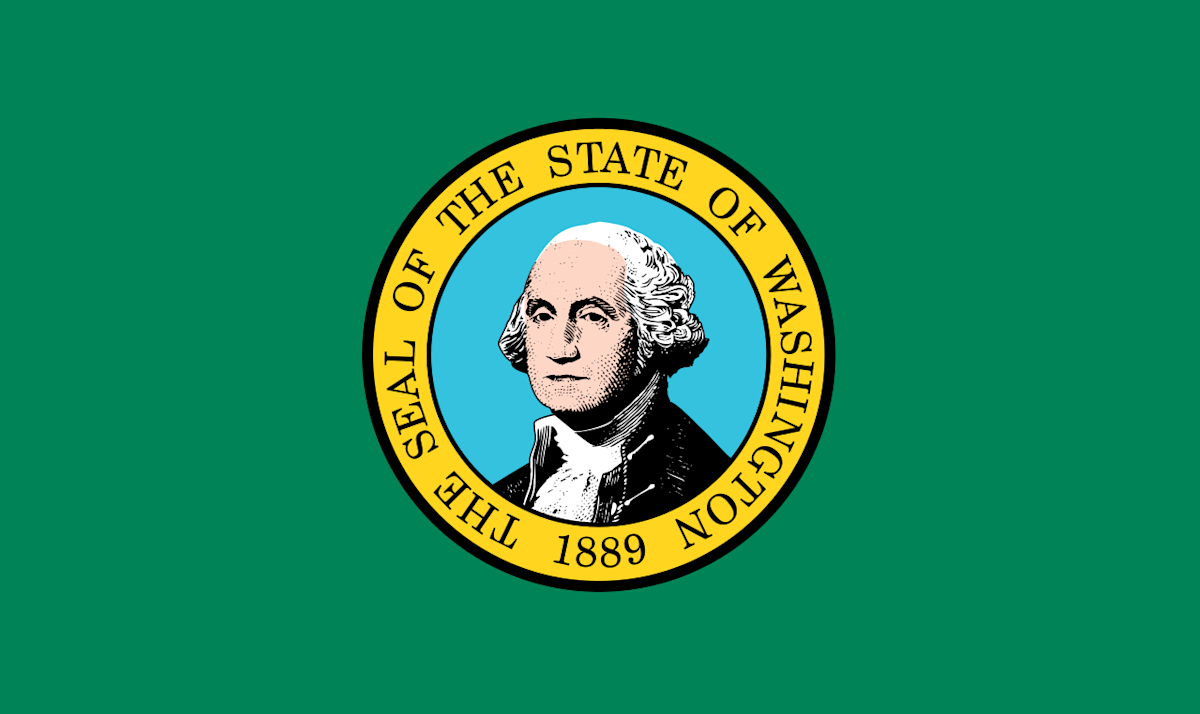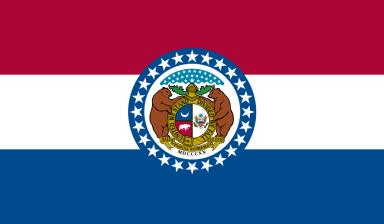Washington Employment and Labor Laws

Washington reports unfair treatment across its workforce despite significant developments in employment and labor laws in the state. According to the U.S. Equal Employment Opportunity Commission, 2,168 discrimination charges were filed in the state in the fiscal year 2022, or 3% of the country's total of 73,485. Retaliation, disability, race, and sex were among the top contributors to the state's total number of claims. In August 2023, the state's attorney general filed a civil rights suit against corporate retailer O’Reilly Auto Parts for retaliating and discriminating against its pregnant employees.
Employment law deals with the relationship between individual employees and their employers. It covers wage and work hours, discrimination, harassment, or whistleblowing issues. Labor law, on the other hand, protects the rights of employees as a whole. Cases involving collective bargaining agreements and unions are handled under labor law.
The statistics and news surrounding the state’s employment and labor conditions may cause anxiety among its workforce, which is why it is crucial that employees are aware of their rights. This article can provide you with pertinent information about Washington employment and labor laws. It also presents useful resources that can help protect you from employers who violate your rights and empower you to take action and seek justice if necessary.
Washington Wage and Hour Laws
All Washington employers must have an agreement with their employees on how much their rate is, which can be an hourly wage, flat rate, salary, commission, or piece rate.
According to the state's employment laws, if you are paid hourly, you should get paid for all hours worked. This refers to all hours during which you are required, authorized, known, or reasonably believed by your employer to be on the premises or at a prescribed workplace. Your hours worked can include the following:
Travel time.
Wait time.
Required training and meeting time.
On-call time.
Equipping and disrobing uniforms or PPE.
Meal periods (in some cases).
Regardless of your payment arrangement with your employer, your pay rate must at least meet the current state minimum wage. If you do not receive the correct amount for the work rendered, you may file a workplace rights complaint.
Minimum Wage
The current minimum wage in Washington is $15.74, which increases yearly. The state's labor and industries department is required to conduct a yearly cost-of-living adjustment to the minimum wage based on the federal Consumer Price Index for Urban Wage Earners and Clerical Workers. Typically, the new minimum wage is announced every September 30 and takes effect on January 1. The minimum wage is set to increase to $16.28 per hour in 2024. There are local jurisdictions that implement higher minimum wage rates. These include Seattle, $18.69 per hour, and SeaTac, $19.06 per hour.
The majority of Washington's agricultural and non-agricultural jobs are qualified for the minimum wage. On the other hand, there are workers who can be paid by their employers less than the state minimum wage. They include:
Minors 14 to 15 years old.
Certificated on-the-job learners, student workers, and student learners.
Workers with disabilities.
Certain apprentices.
Under the Minimum Wage Act, employers are prohibited from retaliating against any employee exercising his or her rights. If a staff member attempts to discuss a potential violation of their rights with their employers, they should not encounter any of the following actions:
Delayed payment for minimum wages, overtime wages, or tips.
Denied use of paid sick leaves.
Suspension, termination, or demotion.
Reduced pay rate.
Altered work schedule.
Disciplinary action.
Overtime Pay
Employers must pay eligible employees who work more than 40 hours in a seven-day workweek overtime. The overtime pay should be at least 1.5 times the worker's regular hourly rate. In Washington, those who are eligible for overtime pay include:
Most hourly, piece rate, and commissioned workers.
Salaried employees, except those in white-collar jobs.
Agricultural and dairy workers.
Employees working on prevailing wage jobs.
Meanwhile, federal law allows public employees to have time off in exchange for overtime pay. This practice, commonly referred to as "exchange time" or "comp time," must be credited for at least 1.5 hours of time off for every hour of overtime rendered. Employers cannot require workers to enter into this arrangement since it needs to be initiated by the employees.
Rest Breaks and Meal Periods
All employees are entitled to paid rest and meal breaks. You must be allowed to have at least 10 minutes of break time for every four hours of work. Your employers should not oblige you to work continuously for more than three hours without having a rest break, but they can require you to remain at your workplace during the rest period.
The law also allows you to have at least a 30-minute meal period if you work over five hours a day. This period should start between the second and fifth hours of your shift. The meal break only gets paid if you are directed to remain on duty or asked to return to work, resulting in the interruption of your meal period. If you are working three hours beyond your scheduled shift, you are entitled to an additional meal period.
Wage Payment
Employees must receive their payments on a regular, scheduled payday, either through cash, check, direct deposit, or debit or prepaid payroll. They should also not be charged additional fees or costs for accessing or withdrawing their wages.
Payroll Deductions
Washington State employees can expect to see deductions from their paychecks. These include:
State and federal law-mandated deductions like Medicare and income tax.
Personal loans and personal purchases of the employer's goods or services.
Court-ordered wage garnishments.
Medical, surgical, or hospital care costs.
Employers should not gain profits or benefits from the payroll deductions of their employees. In addition, they cannot deduct the following items from the employee's paycheck during ongoing employment:
Cash register shortages.
Customer walk-outs, unpaid bills, or theft.
Reimbursement for a customer's bad credit card or check.
Damages to or loss of company equipment.
Washington Workplace Discrimination Laws
Federal and state laws prohibit any company from having unfair employment practices because of an employee's:
Age (40+).
Race or color.
National origin.
Sexual orientation or gender identity.
Marital status.
Pregnancy.
Disability.
Use of a service animal.
HIV, AIDS, and Hepatitis C status.
Honorably discharged veteran or military status.
State employee or health care whistleblower status.
Opposition to a discriminatory action.
Legal consumption of cannabis.
This means that employers should not fire an employee or refuse to hire a jobseeker because of the reasons listed above. If you believe your employer discriminated against you, you can file a complaint with the Washington State Human Rights Commission and EEOC.
Washington's Labor Union Laws
Working men and women in Washington have the right to join or assist a labor union, which aims to increase wages, improve working conditions, or reduce hours of labor. In the same way, they can refuse to join or support such organizations. Under this law, employers and labor unions are prohibited from coercing, restraining, or interfering with employees in the exercise of their labor rights.
Required Posters in Washington State's Workplaces
Employers are obliged to keep their employees informed about their employment rights and responsibilities. Federal and state laws require employers to display workplace posters. Here are some of the required posters:
Job Safety and Health Law.
Your Rights as a Worker.
Know Your Rights: Workplace Discrimination is Illegal.
Notice to Employees — If a Job Injury Occurs.
Unemployment Benefits.
Paid Family and Medical Leave.
Domestic Violence Resources.
Is Washington an At-Will Employment State?
Yes, Washington State observes at-will employment. This means that employers can terminate your employment with them at any time without disclosing the reason or giving you a warning before firing you. The law, however, ensures that your employer will not terminate you or retaliate against you for discussing or filing a complaint about a violation of your employment rights. Similarly, you have the freedom to end your employment relationship with your employer at any time, with or without cause.
The good thing is that you still have the chance to learn about the reason for your discharge. You can request that your former employer provide you with a signed written statement informing you of the reason for your removal from the company and its effective date. They must furnish you with the document within 10 days after receiving your request.
This concept, widely practiced across the U.S., has an exception. By virtue of the Worker Adjustment and Retraining Notification (WARN) Act, companies with 100 or more workers are mandated to notify employees who will be impacted by mass layoffs and plant closings 60 days before the termination of their employment.
What Qualifies as Wrongful Termination in Washington?
You may sue your former employer for unlawful termination if they have discharged you from your job post while violating anti-discriminatory laws, retaliating against your participation in protected conduct, or breaching your employment contract.
Your employer is prohibited from firing you on the basis of race, color, age, gender, religion, national origin, or disability. They cannot also end your employment just because you reported illegal activities in your workplace, submitted a complaint against the company, exercised your workplace health and safety rights, took FMLA-protected leave, or filed a workers' compensation claim.
Additionally, it is illegal for your employer to terminate your employment in a manner that breaches your contractual agreement, including the collective bargaining provisions and policies outlined in the company handbook.
How Do You Report an Employer in Washington for Wrongful Termination?
If you have been illegally terminated by your former employer, you can report them to the appropriate government agencies. You can also consult with an employment attorney to understand the legal options that are available to you.
File a Complaint With the Washington State Human Rights Commission
If you believe your termination was a case of discrimination, you can report a complaint to the state's human rights commission. This government department will help you protect against discriminatory actions from your employer.
File a Complaint With the EEOC
You can also file a complaint for your unlawful termination due to discrimination with the United States Equal Employment Opportunity Commission.
File a Report With the National Labor Relations Board
Reach out to the National Labor Relations Board if you were fired because you took concerted action over workplace issues. This federal government agency will investigate whether your company violated your rights under the National Labor Relations Act. The department will assign you a lawyer who will attempt to reach a settlement. With their help, you can get your job back, and your employer will be ordered to give you back pay.
Seek Assistance From an Employment and Labor Lawyer
One of the available remedies if you have been fired illegally is to file a lawsuit against your former employer. However, it can be complex, as you will be required to prove that your termination was unlawful.
That is why it is ideal that you seek assistance from an employment attorney to ensure your case has valid grounds. Your lawyer will also help you navigate the system, particularly with time limits and the legal procedures.
What is the Statute of Limitations for Wrongful Termination Cases in Washington?
When your former employer illegally terminated your employment with them, you can file a wrongful termination lawsuit to hold them accountable. You must, however, act fast because you only have a three-year statute of limitations, especially if your claim is for a violation of public policy. The clock starts to run on the date you experienced the unlawful termination. The same deadline applies to cases involving a breach of an oral contract, while you have six years to file for a breach of a written contract.
Failure to lodge a suit within the set deadline will reduce your chances of winning the case and receiving a settlement award.
How Much Can Someone Sue an Employer in Washington for Wrongful Termination?
Losing a job can be stressful, especially if you have been discharged illegally. If you are removed from your post because of who you are or for raising safety concerns, suing your company could be an ideal legal option. This process can help you assert your rights and secure the benefits you deserve. In Washington, employees fired illegally are entitled to back pay, front pay, and compensation for their emotional distress.
Resources for Employees in Washington
The following resources may help employees navigate complex issues surrounding employment and labor laws. These organizations also provide assistance to low-income residents in Washington facing legal issues to know and understand their rights and responsibilities, ensuring access to support when needed.
Washington State Department of Labor & Industries
The state's labor and industries department aims to protect and uphold every worker's rights. It ensures that the employment laws and rules covering working conditions, wages, and overtime pay are enforced properly. Its official website provides pertinent information on how to file a complaint if your employment rights have been violated.
Washington State Bar Association
The Washington State Bar Association runs programs that assist low- and moderate-income Washington residents facing civil legal issues. These initiatives include CLEAR (Coordinated Legal Education, Advice and Referral) and the Moderate Means Program. It also operates a local attorney referral service, which connects people facing legal issues with lawyers handling such cases. You can also visit the website of the Washington State Bar Association to find pro bono attorneys or self-help legal resources.
WashingtonLawHelp.org
Washington Law Help assists low-income residents in the state. It provides helpful resources for different civil legal matters, including employment rights, workers' compensation, and employment discrimination.
Expertise.com StaffAuthor
Step into the world of Expertise.com, your go-to hub for credible insights. We don't take accuracy lightly around here. Our squad of expert reviewers, each a maestro in their field, has given the green light to every single article you'll find. From rigorous fact-checking to meticulous evaluations of service providers, we've got it all covered. So feel free to dive in and explore. The information you'll uncover has been stamped with the seal of approval by our top-notch experts.




